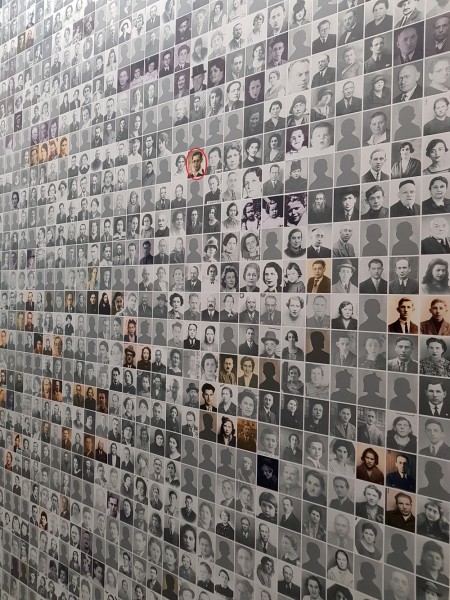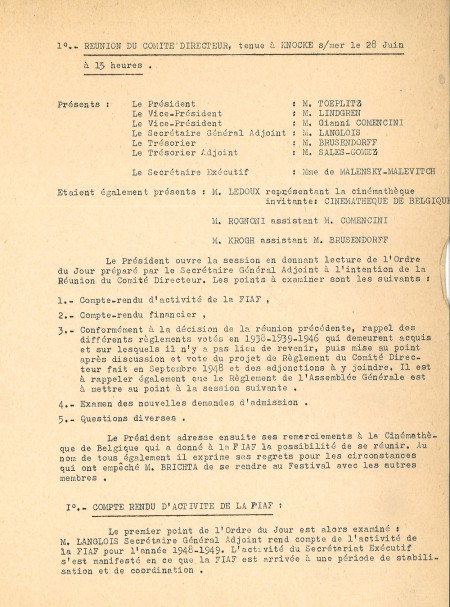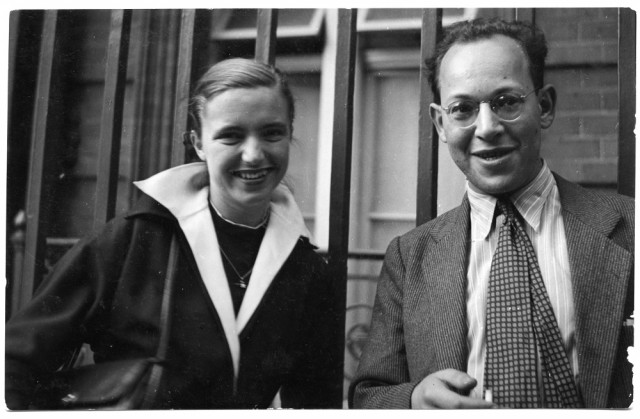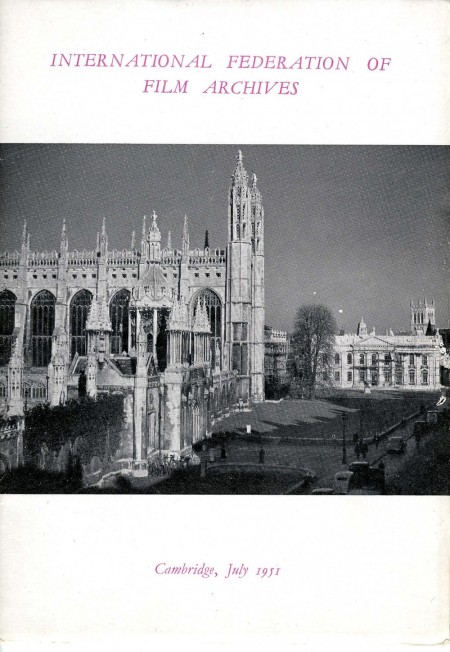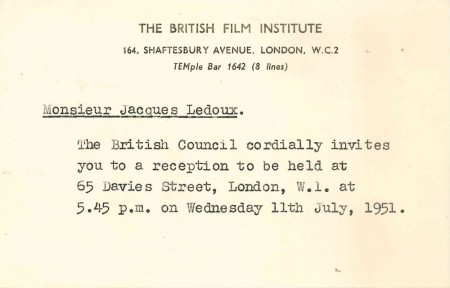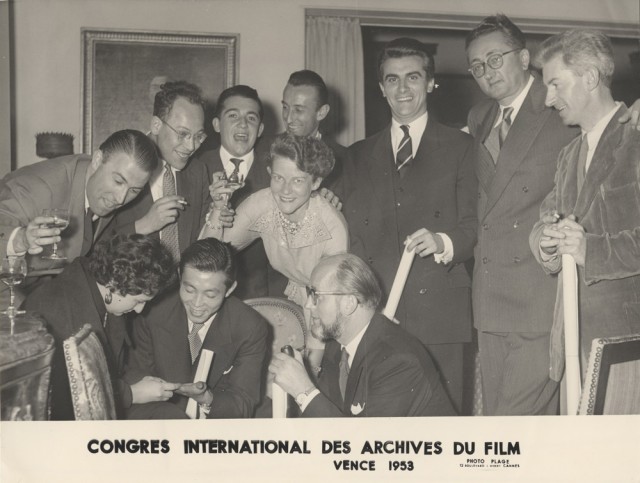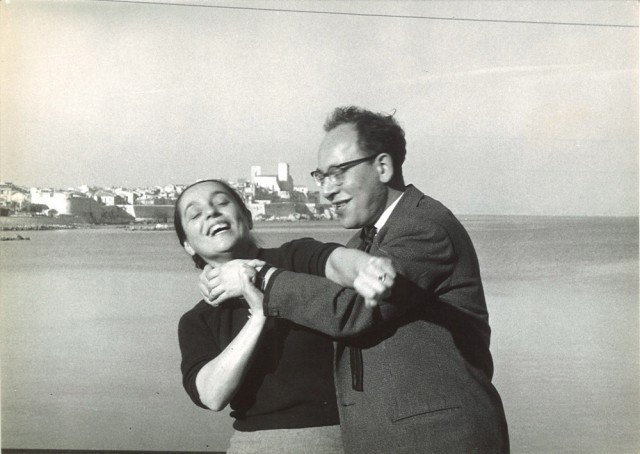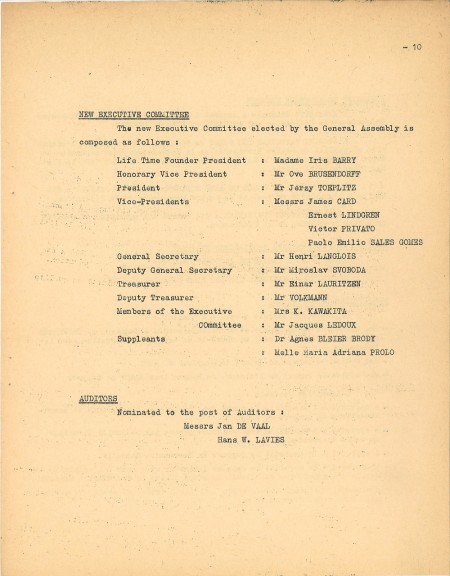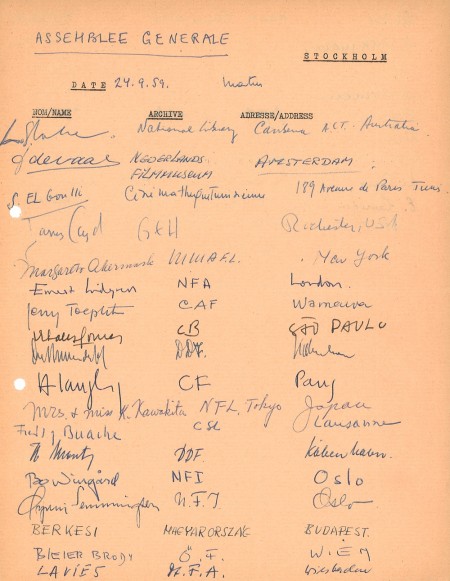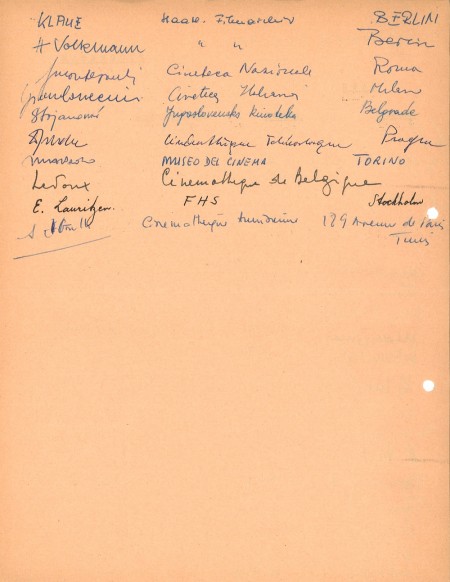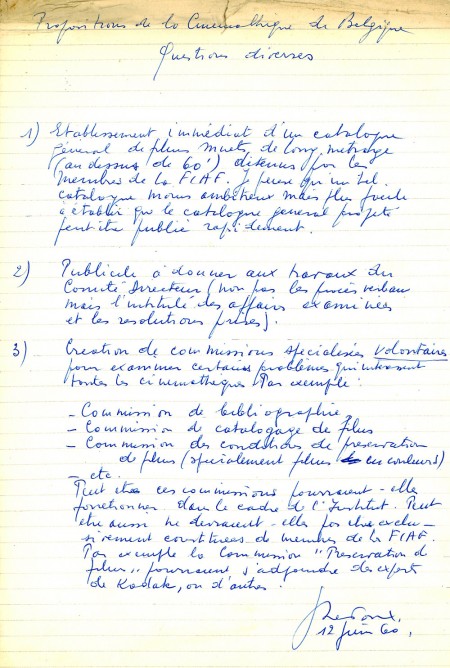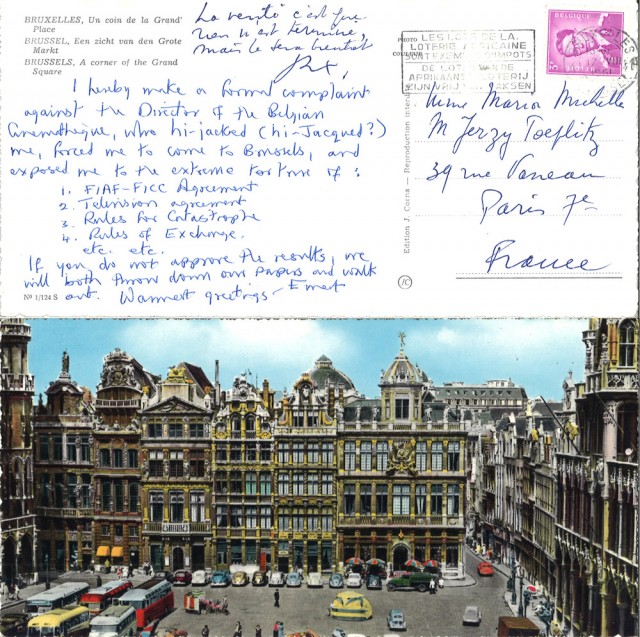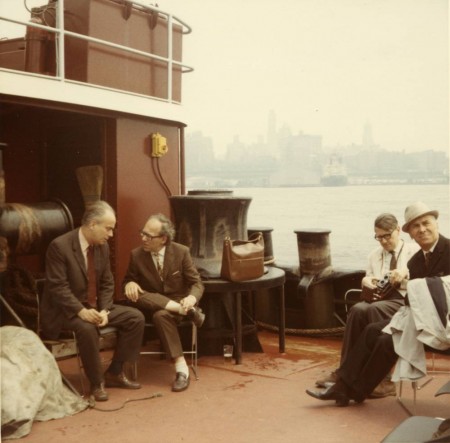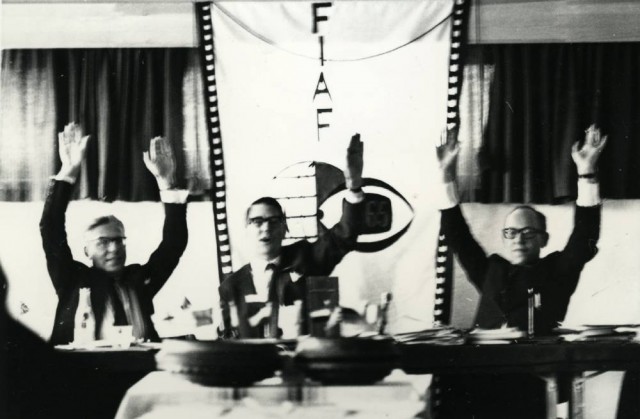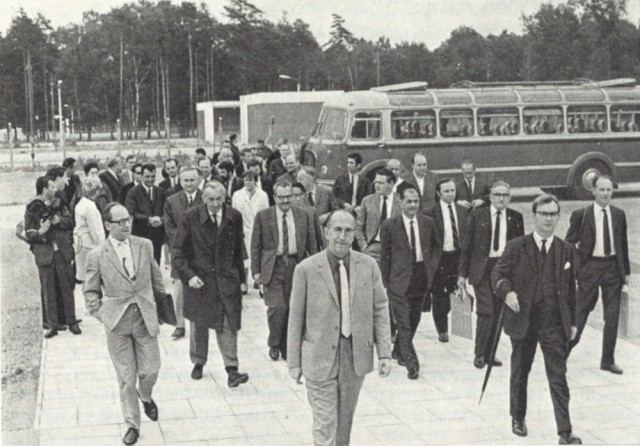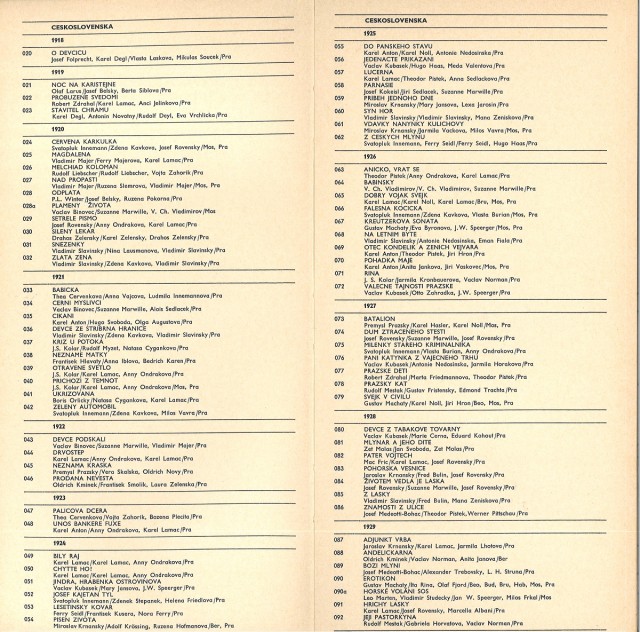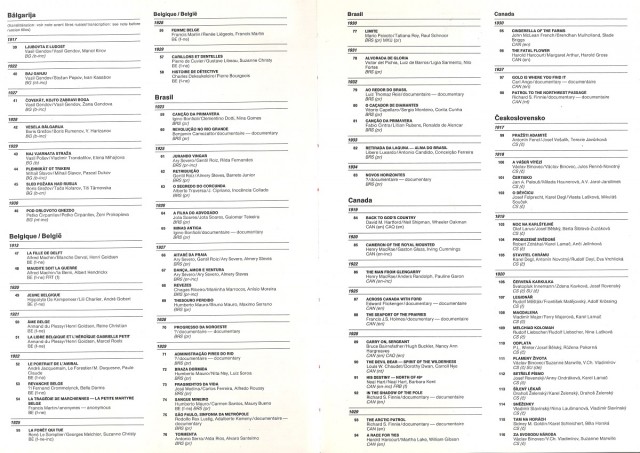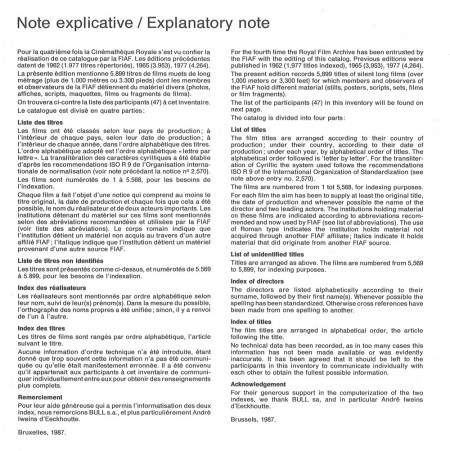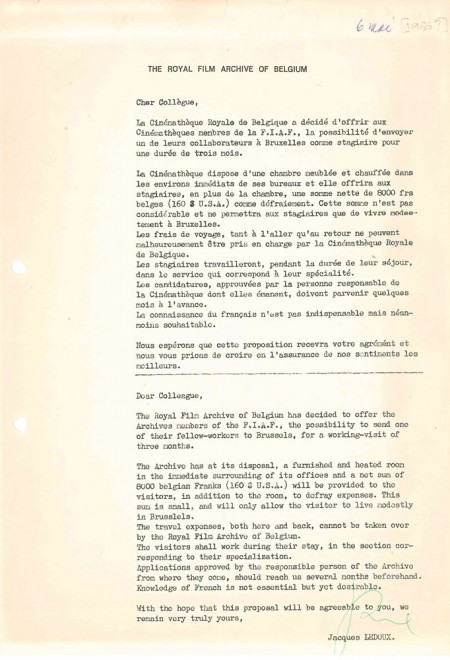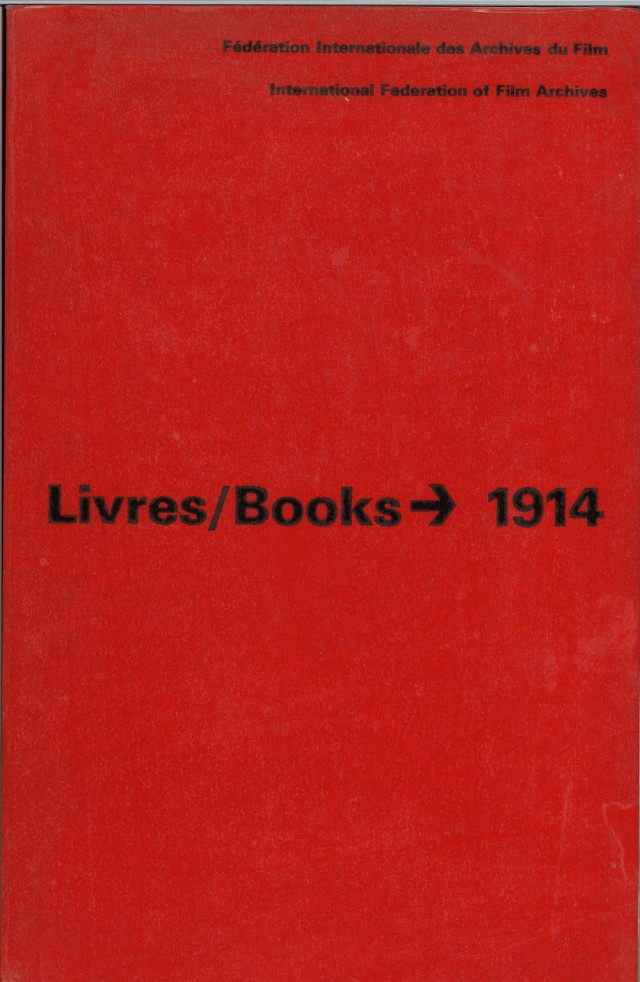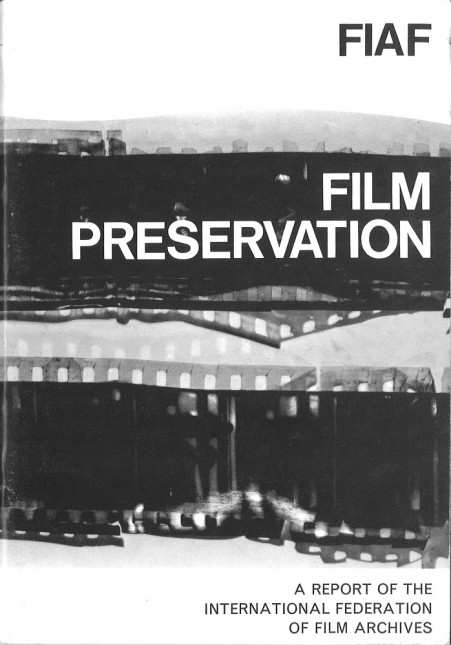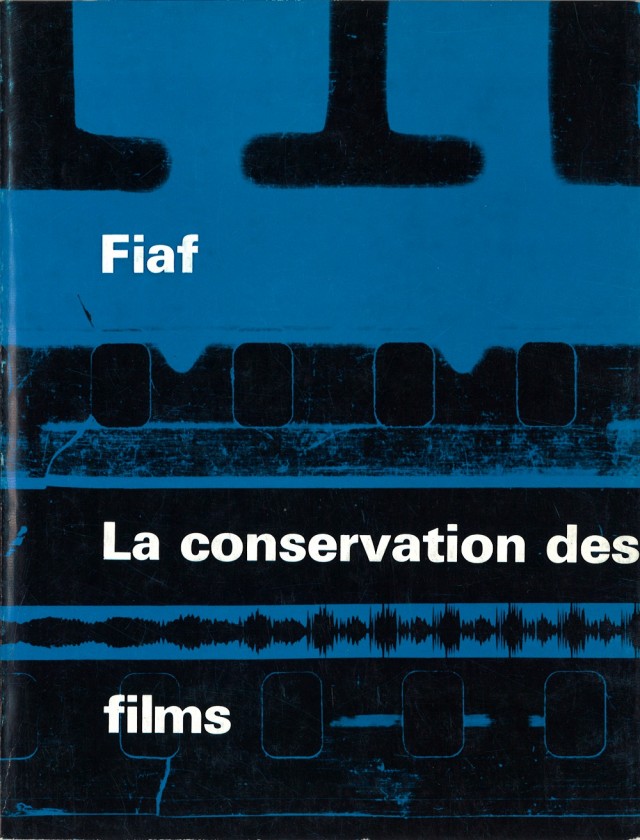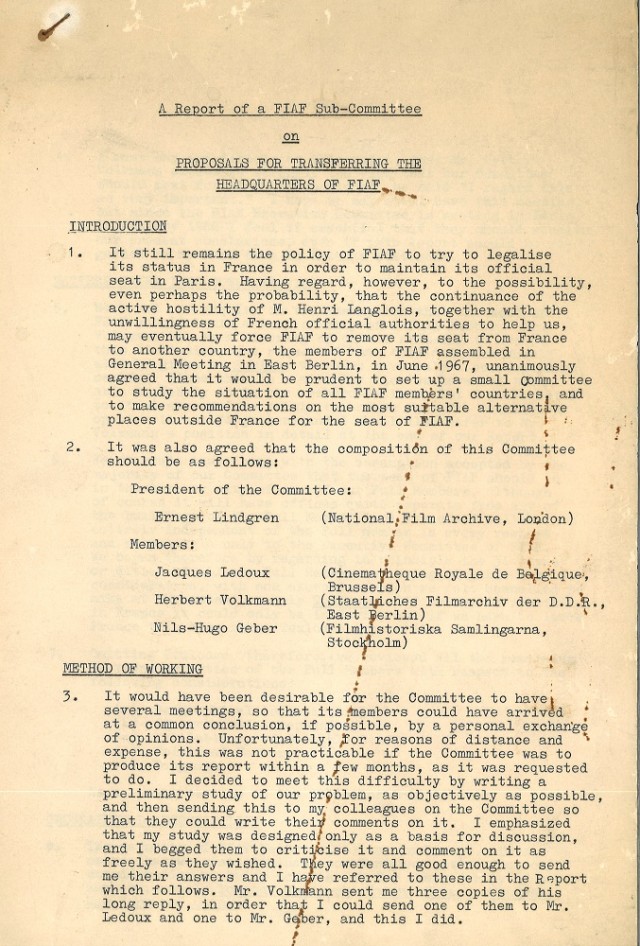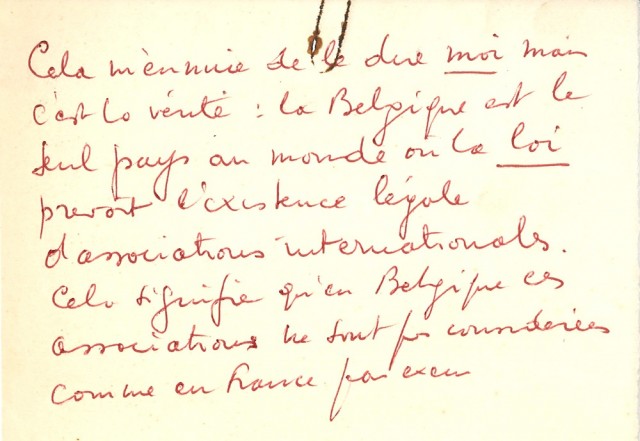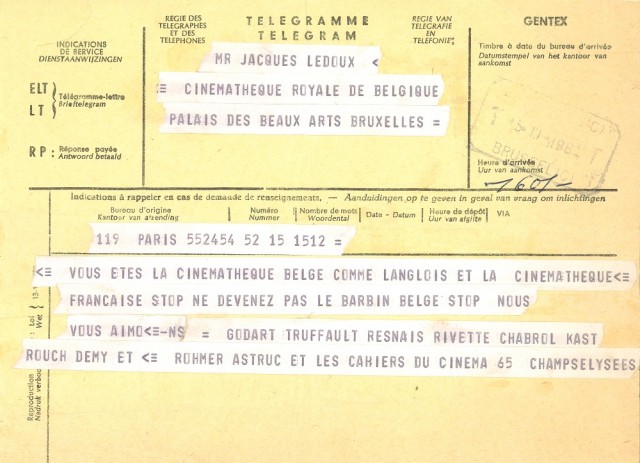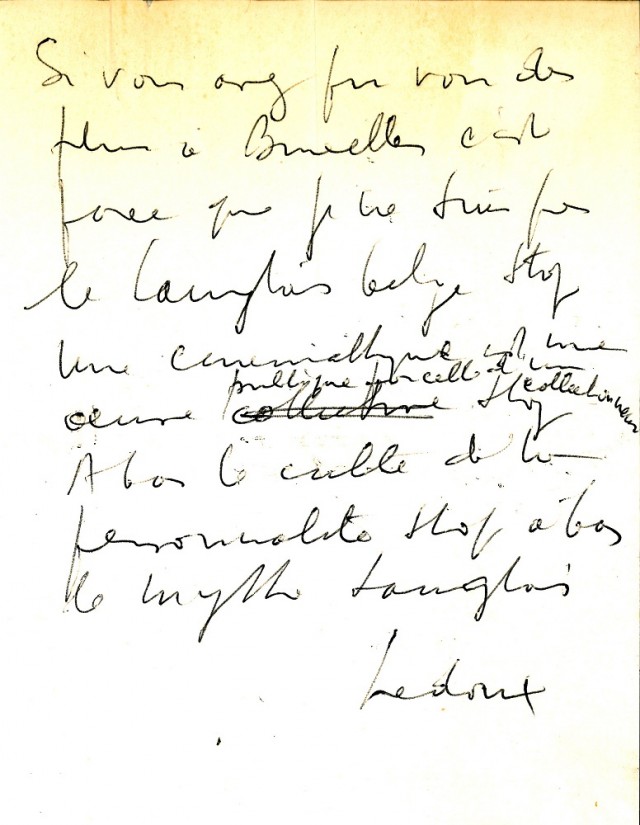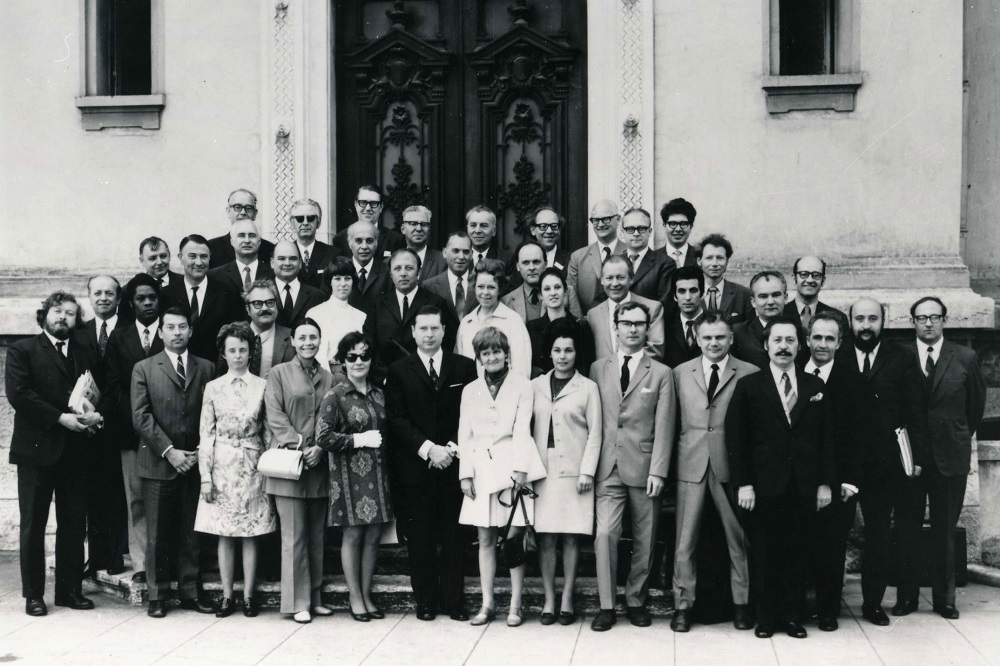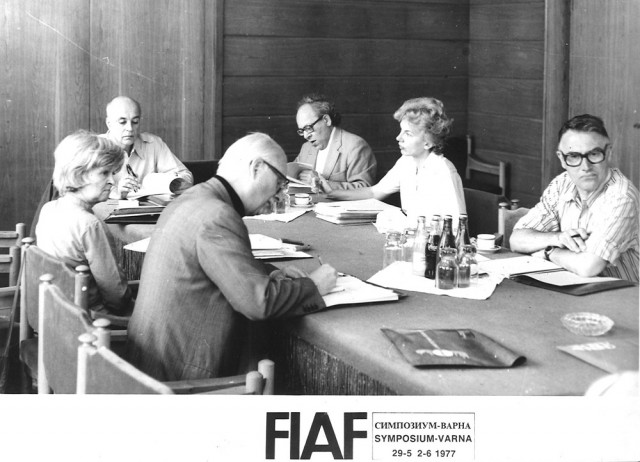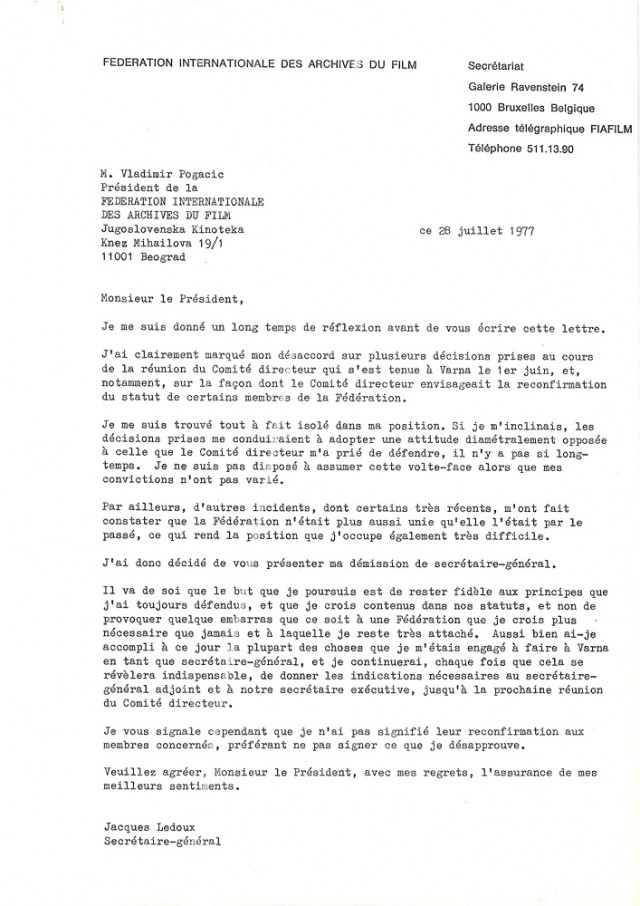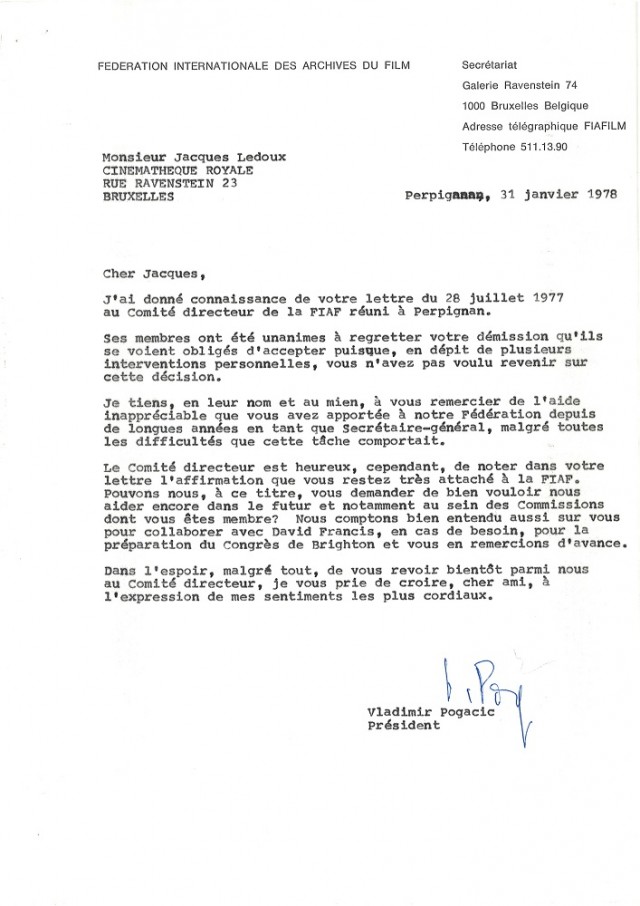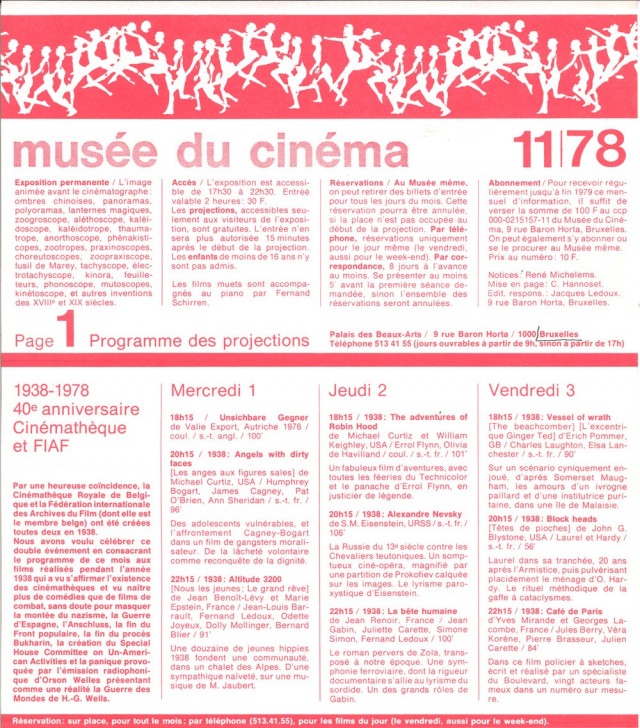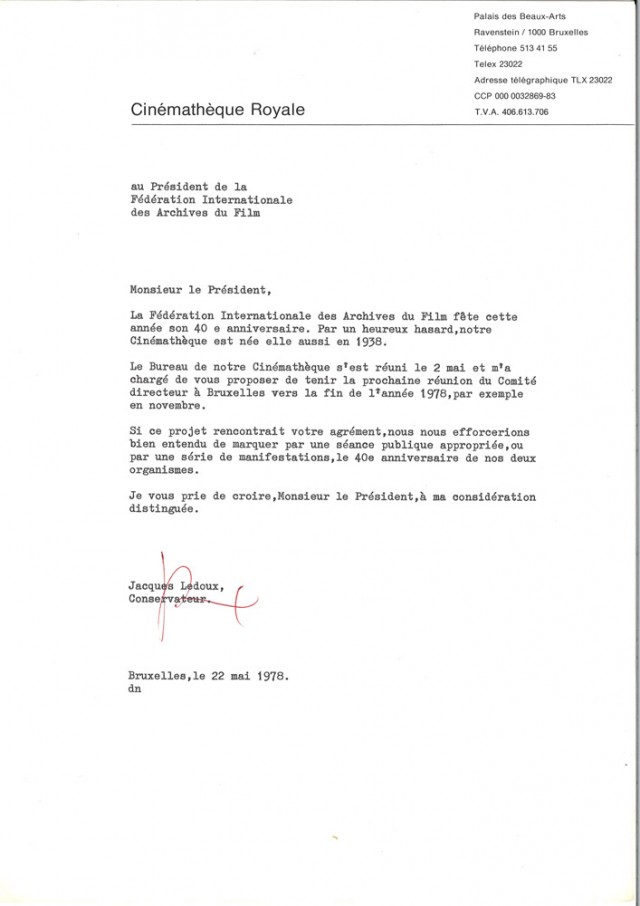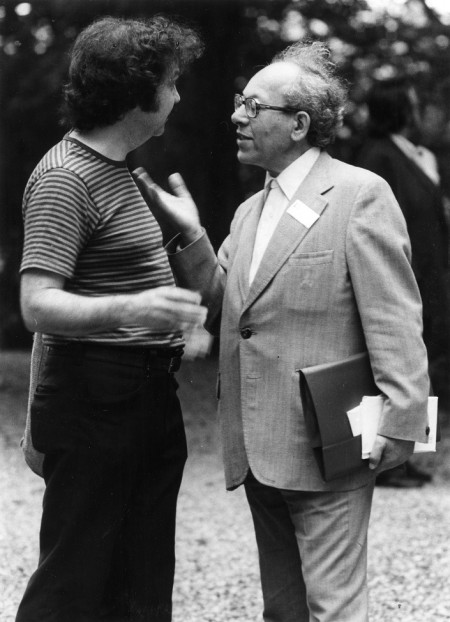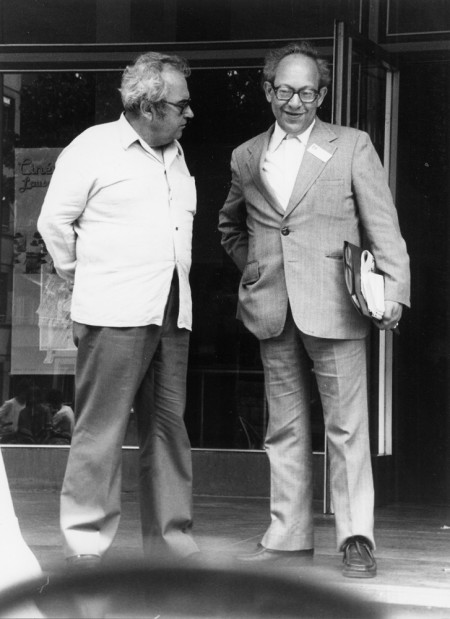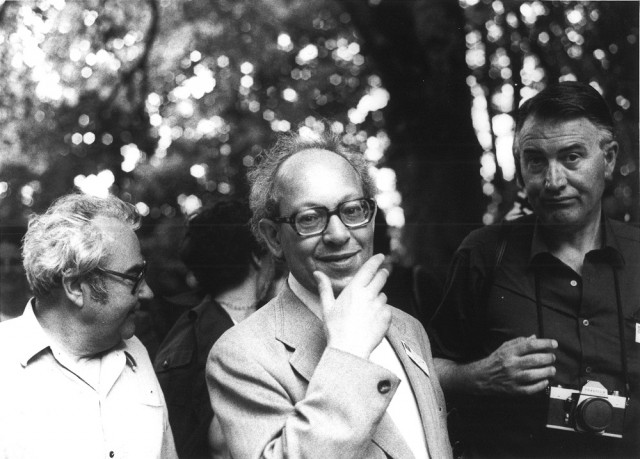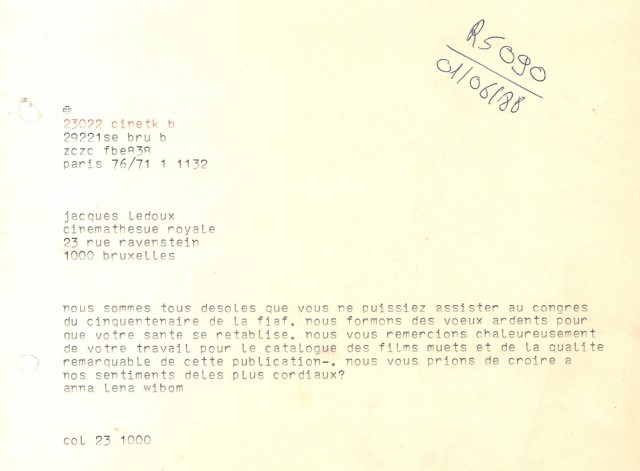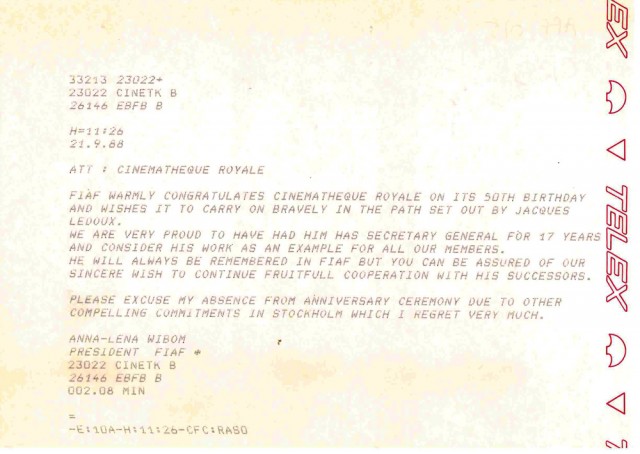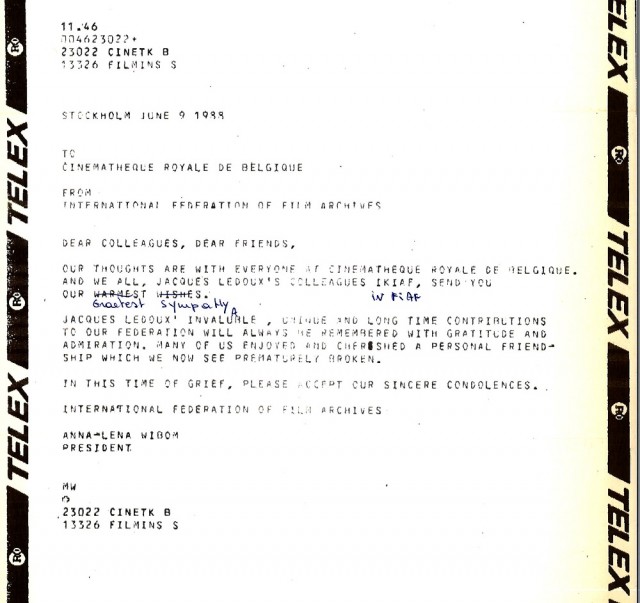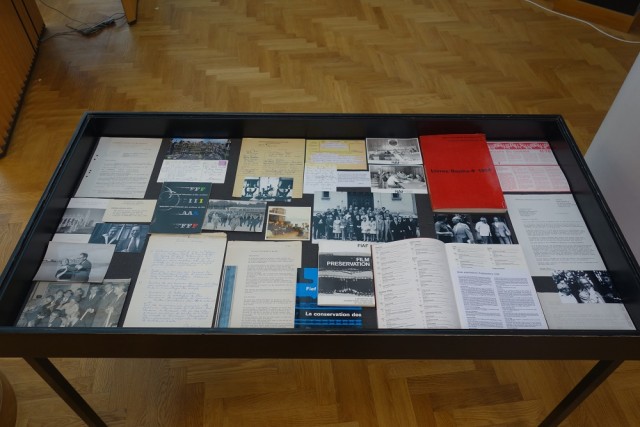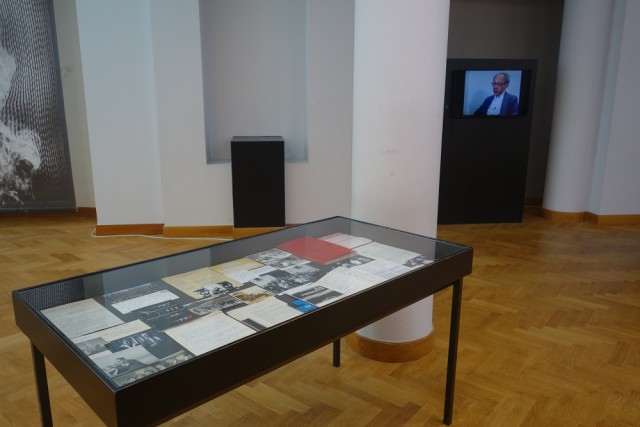Centenary of Jacques Ledoux's Birth
Jacques Ledoux and FIAF:
An Online Exhibition
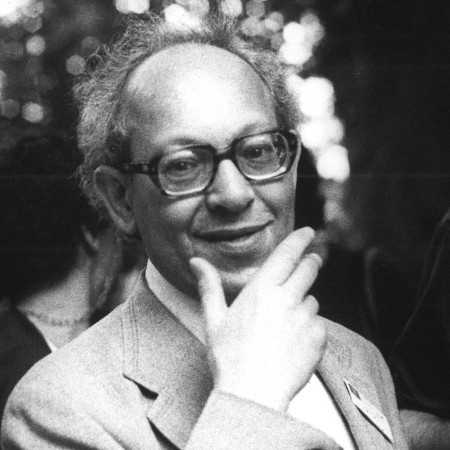
Jacques Ledoux, Curator (conservateur) of the Cinémathèque royale de Belgique (Royal Film Archive of Belgium) from the late 1940s to his death in 1988, and Secretary-General of FIAF from 1961 to 1977, was born on in Warsaw on 15 October 1921 (or 26 October 1921, depending on which official documents one consults!). To mark the centenary of his birth, the Cinémathèque royale de Belgique has organized an exhibition about Jacques Ledoux (from 15 September 2021 to 27 February 2022 at Cinematek), and FIAF was invited to contribute a section on Ledoux and FIAF, as FIAF was an important part of Ledoux's career, while Ledoux is still remembered as one of the key figures of our 83-year history. What follows is the online display of the documents presented in that section, augmented with a few additional items. Unless stated otherwise, all documents are from the FIAF Historical Archive in Brussels. You can click on each document to enlarge it.
Christophe Dupin & Barbara Robbrecht
Spring 1948
First contacts between Jacques Ledoux, who had been working for the Cinémathèque de Belgique, and FIAF. On 8 May 1948, Ledoux wrote to Zika de Malewski-Malevitch, FIAF's new Executive Secretary, to ask for help to obtain a visa to travel to London for the forthcoming Congress (in the end, the 1948 Congress would take place in Copenhagen and the Cinémathèque de Belgique would be represented by its director André Thirifays). In this letter, Ledoux revealed his real identity: born on 15 October 1919 in Warsaw, he was a Polish citizen, and his real name was Jankiel Mendel Silberberg. Ledoux would become a Belgian citizen in 1950, and would have his name officially changed to Ledoux in 1955.
At the end of the letter, Ledoux asked that this information about his identity remain confidential - no doubt because he was keen to conceal his traumatic past. Ledoux had emigrated to from Warsaw to Brussels with his family in 1930. In May 1940, his mother and siblings were killed in German bombing raids in Abbeville (France). In late 1942, as the persecution of Belgium's Jews escalated, he was sent to the Dossin barracks, a deportation camp in Mechelen, and put on the 19th train to Auschwitz Birkenau on 15 January 1943. He was one of the very few who managed to jump off that train and escape. He went into hiding for the rest of the war.
June 1949
In June 1949, Jacques Ledoux organized for the Cinémathèque de Belgique the first "Festival du cinéma expérimental" (25 June to 8 July) in Knokke-Le Zoute, on the Belgian coast. On that occasion, the Cinémathèque de Belgique invited the FIAF Executive Committee to hold its meeting in Knokke, and Ledoux represented the Cinémathèque at the meeting, which took place from 28 June to 1 July. It was Ledoux's first FIAF Executive Committee meeting.
July 1951
Jacques Ledoux attended his first FIAF Congress in Cambridge (UK) as the representative of the Cinémathèque de Belgique. The Congress was hosted by the National Film Library of the British Film Institute, a founding member of FIAF.
Jacques Ledoux (standing, second from left) with other delegates of the 1953 FIAF Congress in Vence (France). Source: Cinémathèque royale de Belgique.
September 1959
Throughout the 1950s, it was André Thirifays, Director of the Cinémathèque de Belgique, who was the main representative of the institution at FIAF events, even though Ledoux did attend the 1953 (Vence) and 1957 (Antibes) congresses. In September 1959, as Thirifays had recently resigned from his post, no-one represented the Cinémathèque at the Stockholm Congress. However, Henri Langlois, the Secretary-General of the Cinémathèque française (and the undisputed leader of FIAF since the end of World War II), publicly accused Jacques Ledoux of having flouted the rules of FIAF following a project he had initiated with UNESCO. Ledoux was summoned to Stockholm to explain himself - he arrived on the fourth day of the Congress. The majority of the Executive Committee backed Ledoux, who was even elected as an Executive Committee member. Furious, Langlois left the Congress. In the next few months, he would provoke a huge schism in the FIAF community. The Cinémathèque française would eventually leave FIAF in 1962, taking with it a few other members.
A page from the 1959 Congress report showing the result of the Executive Committee elections.
June 1960
After his 1959-60 clash with FIAF, Henri Langlois was convinced that the network would quickly collapse without him and the Cinémathèque française. This was not to be the case. In fact, the 1960s were one of the most productive decades in the history of the Federation. One man played a key role in this new active period - Jacques Ledoux. On 12 June 1960, during the Congress in Amsterdam, Ledoux wrote down a few proposals as a basis for discussion. Those would quickly materialize into key projects, such as the constitution of specialized commissions and a unified silent film catalogue.
June 1961
Jacques Ledoux was elected Secretary-General of the Federation during the Congress in Budapest. He would retain this leading role for 16 years, which arguably remain some of the most productives years in FIAF's history. Ledoux was not on his own, however. He was surrounded by other leading figures, such as Ernest Lindgren (Curator of the National Film Archive in London and FIAF's Vice-President), Jerzy Toeplitz, FIAF's president, and Marion Michelle, FIAF Executive Secretary, whom Langlois had attempted (but failed) to fire in January 1960.
Postcard from Ernest Lindgren and Jacques Ledoux to FIAF President Jerzy Toeplitz and FIAF Executive Secretary Marion Michelle after a work meeting in Brussels in 1961.
June 1962
The first edition of FIAF's collective Catalogue of Silent Long Films, edited by Jacques Ledoux, was published by the Cinémathèque (now "royale") de Belgique for FIAF. It listed 1977 films contributed by 31 FIAF-affiliated archives. Unfortunately this first edition seems to have been lost.
Subsequent editions, all coordinated by Ledoux and his Cinémathèque, would be published in 1965, 1977, and 1987. The data from those catalogues is now included in the Treasures from the Film Archives database, a key resource for the FIAF community today.
May 1966
Jacques Ledoux circulated a memo to all FIAF members offering internships at the Cinémathèque royale de Belgique for colleagues working in the other archives of the network, long before FIAF started organizing training of film archive professionals, and over 50 years before FIAF set up its Internship Fund.
1967
Jacques Ledoux and the Cinémathèque royale de Belgique publish two important collective volumes for FIAF: the FIAF Union Catalogue of Books and Peridicals Published Before 1914, and La Conservation des films, the French edition of the landmark manual Film Preservation, written by the FIAF Preservation Commission in the early 1960s and published in English in 1965.
January 1968
From 1947 to 1960, the FIAF Secretariat was hosted by the Cinémathèque française in Paris. In January 1960, at the height of his conflict with the Executive Committee, Langlois suddenly closed - and sealed - the office of the FIAF Secretariat, which had to be relocated at the Executive Secretary's Paris home for a year, until the French documentary filmmaker Jean Painlevé offered to host it at his home at 38 Avenue des Ternes in Paris (which is still FIAF's formal address today). With Ledoux's influence on FIAF business growing in his new capacity as Secretary General of the Federation, he finally proposed a relocation of the FIAF office - initially temporarily - from Paris to Brussels, while the Executive Committee was discussing the best long-term location for the FIAF Secretariat. In January 1968, the FIAF Secretariat was given an office at the Cinémathèque royale de Belgique, in Galerie Ravenstein. This arrangement was confirmed in 1970, and the FIAF Secretariat remained there until it moved to its own Brussels offices in 1980. However, FIAF's official status has remained that of a French association.
Spring 1968
In February, Henri Langlois was dismissed from the Cinémathèque française by the French Culture Minister André Malraux, and replaced by Pierre Barbin. The filmmakers of the French New Wave were vocal Langlois supporters in that period. Perhaps disappointed by Ledoux's lack of clear support for Langlois' cause, they (Godard, Truffaut, Resnais, Rivette, Chabrol, Kast, Rouch, Demy, Rohmer, Astruc, and the Cahiers du cinéma staff) sent him a telegram with the following text: "You are the Cinémathèque belge in the same way as Langlois is the Cinémathèque française. Don't become the Belgian Barbin. We love you." The draft of his reply (it is not known whether he sent it) goes as follows: "If you have been able to see films in Brussels, it is because I am not the Belgian Langlois. A cinémathèque is a public entity, not that of a collector. Down with the cult of personality! Down with the Langlois myth!"
Jacques Ledoux with the delegates of the 1970 FIAF Congress in Lyon, outside the Lumière Villa (today the home of the Institut Lumière), where the Congress took place.
July 1977
On 28 July 1977, Jacques Ledoux wrote to FIAF President Vladimir Pogacic to inform him of his decision to resign from his position as Secretary-General of FIAF. He explained that he strongly disagreed with a number of recent decisions taken by the Executive Committee, and felt his own position too isolated for him to continue. After 16 years as FIAF's de facto leader, fatigue was also probably starting to set in. However, his decision took the President and Executive Committee by surprise, and many attempts were made to try to make him reconsider. In the end, the Executive Committee accepted his decision at its meeting in Perpignan in January 1978, and Raymond Borde, the Curator of the Cinémathèque de Toulouse, replaced him as Secretary General. A thorough discussion about Ledoux's resignation took place at the following FIAF Congress in Brighton (May 1978), during which Ledoux had the opportunity to explain the reasons for this decision.
Recordings of the discussion on Jacques Ledoux's resignation at the 1978 Brighton General Meeting:
1) Eileen Bowser's introduction (in English, 5 mins)
2) Jacques Ledoux's speech (in French, 55 mins)
3) Discussion (in English and French, 55 mins)
(The detailed transcript of this session can be found in the official Minutes of the 1978 General Meeting).
November 1978
FIAF and the Cinémathèque royale de Belgique were officially born the same year - 1938. In November 1978, Ledoux programmed a joint anniversary retrospective in Brussels. To mark that double occasion, he also invited the Executive Committee to hold its autumn 1978 meeting in Brussels during the restrospective. This meeting, which he attended (he had indeed been re-elected as an EC member at the Brighton Congress a few months earlier), would turn out to be his last-ever FIAF Executive Committeee meeting.
May-June 1979
At the end of May 1979, Ledoux travelled to Lausanne and to the Château de La Sarraz for the 1979 FIAF Congress, on the theme of "Independent and Avant-garde Cinema". After the Lausanne Congress, he would not attend another FIAF Congress until that of West Berlin in 1987, a year before his passing.
Jacques Ledoux at the 1979 Lausanne Congress, with Paul Spehr, Raymond Borde, and Jan de Vaal.
June 1988
The Congress marking FIAF's 50th anniversary took place in Paris from 1-5 June 1988 - without Jacques Ledoux, who had informed FIAF that he was too ill to travel to Paris. On the opening day of the Congress, the President Anna Lena Wibom sent him a telegram on behalf of the FIAF community to wish him well and tell him how sorry everyone was that he couldn't be there to celebrate FIAF's jubilee with them. Ledoux passed away less than a week later, on 6 June, just as the Congress ended.
Telex message from FIAF President Anna Lena Wibom to Jacques Ledoux on the first day of the 1988 FIAF Congress in Paris.
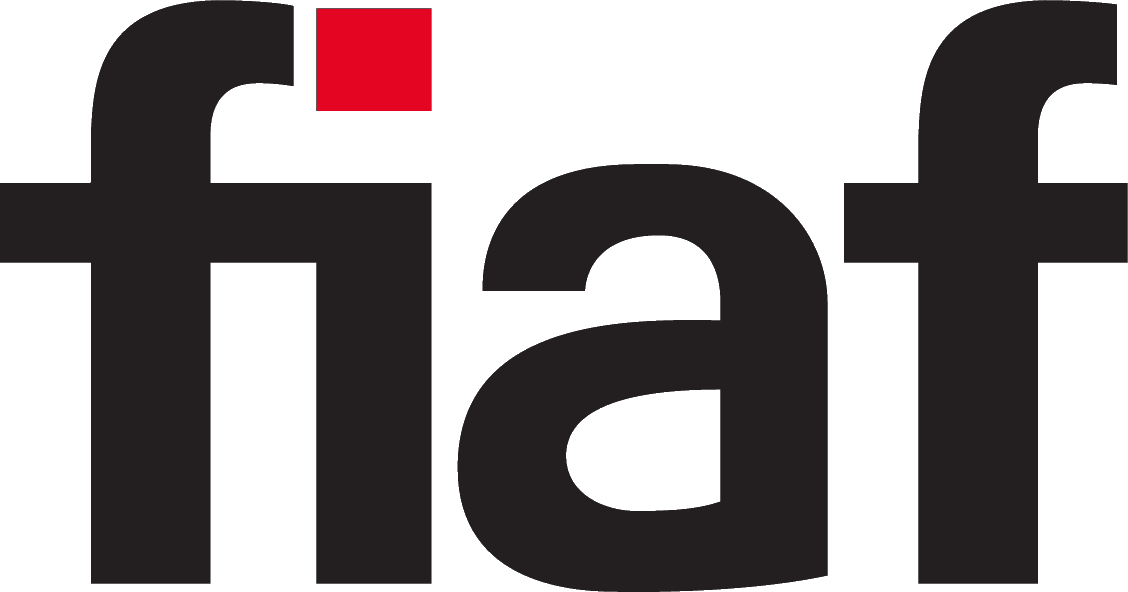
-1000px-L450.jpg)
